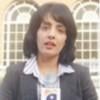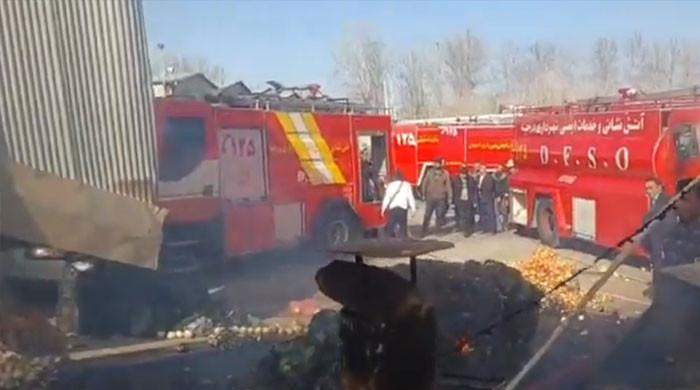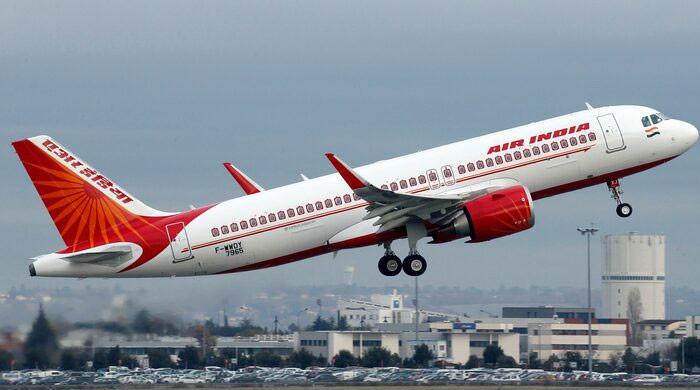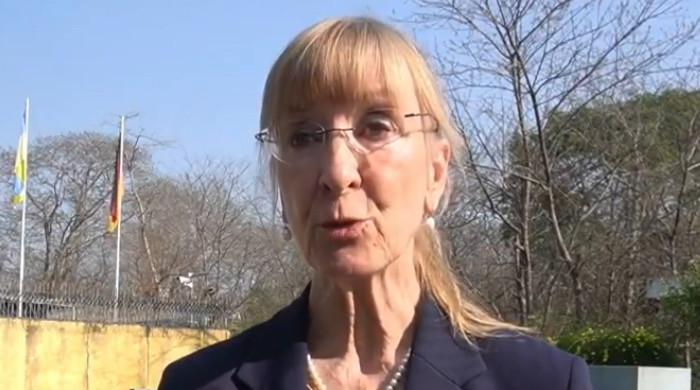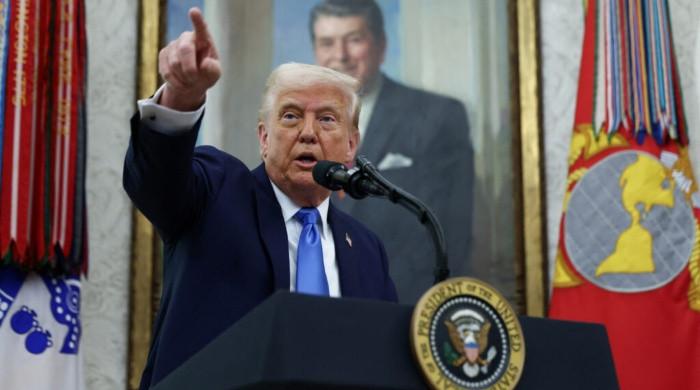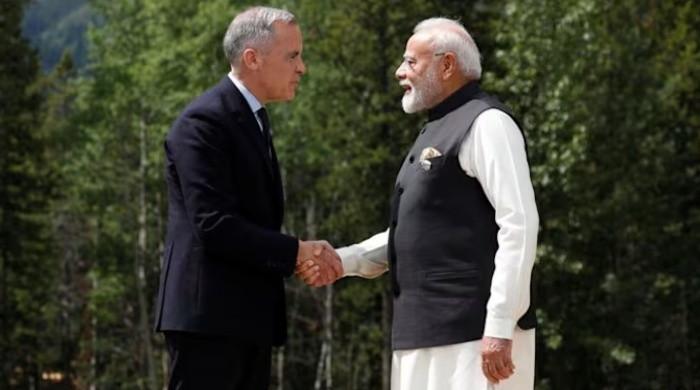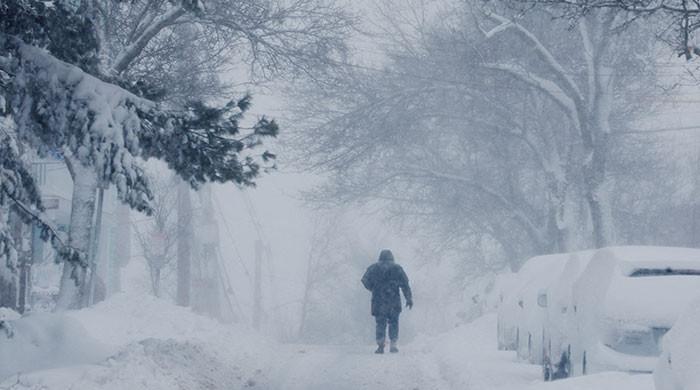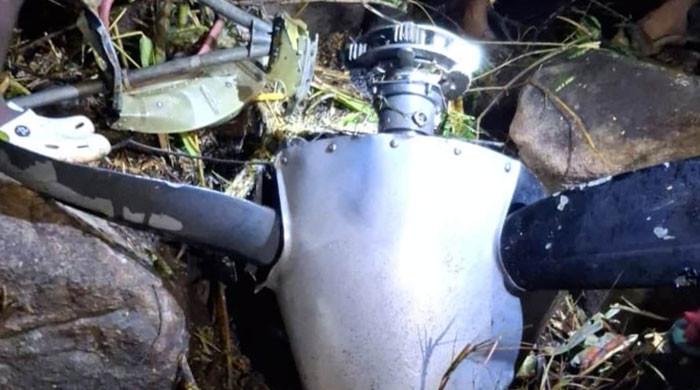In heated debate, British MPs condemn persecution of Muslims in India
”The fact that the Indian government has felt able to pass this law and some of the responses that we have seen to it are deeply distressing.”
March 04, 2020
LONDON: In a heated debate on Tuesday, British Members of Parliament condemned the recent violence against Muslims in India following protests against a new citizenship law introduced by the country’s Hindu nationalist government.
More than 40 people have lost their lives and hundreds have been injured in New Delhi in rioting led by violent Hindu nationalist mobs against Muslims protesting over the Citizenship (Amendment) Act, also known as CAA.
The law would effectively deprive Muslim refugees of citizenship and, if combined with a proposed National Register of Citizens (NRC), critics fear it will discriminate against the Muslim minority in India and chip away at the secular constitution.
More than 25 members took part in the debate, expressing their concerns on the escalation of violence and the failure of Indian authorities to protect peaceful protestors from the attacks of ultra nationalist mobs.
The debate was initiated by Khalid Mahmood, an MP from Birmingham and the most senior Muslim member, when he raised an urgent question on the situation in India.
He asked Secretary of State for Foreign and Commonwealth Affairs Dominic Raab to make a statement on recent violence in India.
In the absence of Raab, UK's Minister of State in the Foreign and Commonwealth Office (FCO) Nigel Adams responded.
Adams informed the parliament that events taking place in New Delhi were very concerning and the situation there is still tense. He said that the British High commissioner in New Delhi is monitoring the situation and the recent violence over the CAA.
British authorities, including a minister in the foreign office, Lord Tariq Ahmed, are in constant contact with authorities in India, he said.
“The death of one protester is one too many. We urge restraint from all parties and trust that the Indian government will address the concerns of people of all religions in India.
“We also condemn any incidents of violence, persecution or targeting of people based on religion or belief, wherever it happens in the world.”
Adams also stated that many people have raised their concern over the CAA, which expedites the path for citizenship of people from every religion but notably not Muslims.
“The UK government have concerns about the potential impact of this legislation. We will continue to follow events closely and to raise our concerns when we have them,” he added.
Mahmood, in response, termed Adams’ briefing as “facile”.
He told the House that he raised the issue last Thursday and the minister is responding only now. He said Muslims in India are facing “sickening” violence in recent weeks over CAA.
Muslims who fail to make to the national register are in danger of being put into concentration camps, he warned.
“Through such laws, Prime Minister Modi is turning a hateful nationalistic slogan into brutality. He recently said ‘Hinduon ka Hindustan’ which is literally translated as ‘India for the Hindus,’” pointed out Mahmood.
He further added that not only Muslims but even the secular Hindus who are protesting are also being targeted by sectarian hate mobs backed by ultra nationalist politicians from the ruling BJP.
The senior MP shed light on how dozens of Muslims have been dragged out of their homes in the aftermath of the protests, burned alive or beaten to death in streets by mobs as thousands more have lost their livelihood. All the while, the Indian police look on passively, and Modi cynically counts the benefits of electoral success.
Mahmood also criticised those who see India as one of the global leaders of the 21st century or with a permanent place in the UN’s security council.
The debate lasted for nearly 40 minutes and several members of all four major political parties from both sides of the House took part in it.
Labour’s Yasmin Qureshi criticised Modi for labelling the violence as “community clashes”. She told the house that in the past five years , the BJP government has chosen a path of systematic discrimination whether it is the abrogation of Article 35A in Kashmir or the citizenship law.
Yasmin, who is an MP from Bolton, said, “India is now controlled by a Hindutva supremacist Rashtriya Swayamsevak Sangh ideology, with strong historic links to the Nazi party. The current Prime Minister of India was a member of the RSS.”
Tanmanjeet Singh Desi, an MP from Slough, shared his personal painful memories which he suffered during the 1984 Sikh genocide in India while he was studying there.
Desi, who’s the first Sikh MP, termed the persecution of Indian Muslims as utterly intolerable. “We must learn from history, not be fooled by those whose insidious aim is to divide society and are hell bent on killing people and destroying religious places in the name of religion,” he said.
Scottish National Party member from Stirling Alyn Smith said, “The situation has been occasioned by a deliberate Indian government policy of targeting Muslims with the Citizenship (Amendment) Act.”
Conservative MP from Wealden, Nus Ghani also expressed her concerns. The former transport minister said, “The brutality seems to have been meted out by those who should enforce the law, as was recently shown in BBC coverage”.
Conservative MP from Rutland & Melton, Alicia Kearns asked the British government to ramp up the pressure on the Indian government on this issue before further escalation takes place.
”The fact that the Indian government has felt able to pass this law and some of the responses that we have seen to it are deeply distressing.”
Labour’s Mohammad Yasin from Bedford, referring to reports in British media, termed the latest outbreak of violence “very worrying”.
“There is evidence that the police are complicit in and, indeed, encouraging violence against Muslims,” he said.
Liberal Democrat senior member of parliament from Orkney & Shetland Sir Alistair Carmichael said that this is “not an isolated event but a course of conduct to marginalise Muslims in India”.
Sir Carmichael said, ”The Citizenship (Amendment) Act and the violence it has precipitated would be concerning enough if it was a single isolated act, but we all know that it is not; it comes on the heels of the Modi government’s actions in relation to Kashmir and the implementation in Assam of a national register of citizens”.
Senior Labour member from East Ham, Stephen Timms, said that he feels sad that the citizenship act is a move away from the Indian constitution which was drafted by Dr B. R. Ambedkar and was admired around the world for its commitment to equality, irrespective of religion.
Labour’s newly elected MP from Coventry Zarah Sultana reminded the House that India has already stripped Jammu & Kashmir of its autonomous status.
“The recent violence in Delhi, which has been whipped up by BJP politicians and has led to dozens of deaths, is just the latest targeted assault on Muslims by the Modi Government,” she said.
Labour’s Alex Noris, an MP from Nottingham, said, “Recently, delegates from Nottingham’s Indian diaspora came to see me and challenged me — quite legitimately — over our special connection and relationship with India, which they said gave us a responsibility to speak out against what we have seen in Kashmir and with the CAA.”
Conservative MP from Stoke Jack Brererton said, “The situation in Jammu and Kashmir is of particular concern to my constituents, many of whom have family and friends in the region.”
Labour’s Nadia Whittome, who is the youngest member of the House, asked the minister to join her in rejecting the language of riots, clashes, protest and communal violence.
“This is, in fact, a continuation of sustained and systemic Hindutva violence waged on the Muslims and many minority ethnic communities in India that is sanctioned by Modi’s BJP Government.”
Other members of Parliament who participated in the debate were Imran Ahmed Khan, Marco Longi, Jack Brereton, Virginia Crosbie, Mary Robinsons, Richard Graham, Neil O’Brien, Mark Pitchard and John Howell from ruling Conservative party, while Labour’s Preet Kaur Gill and Scottish National Party’s Margaret Ferrier, Alison Thewliss and David Linden.
The members raised not only their concerns but also the concerns of their constituents over the situation and violence in India. They demanded that the UK government use its influence to ensure that the situation doesn’t escalate any further. The MPs also said that the UK government must ensure that all religious and ethnic minorities are safe, secure and free from persecution in India.
Responding to various questions, Adams said that any allegation of human rights abuses is “deeply disturbing” and the violence was “incredibly concerning”. He assured the House that the British government had made it clear that those incidents must be investigated thoroughly, promptly and transparently.
